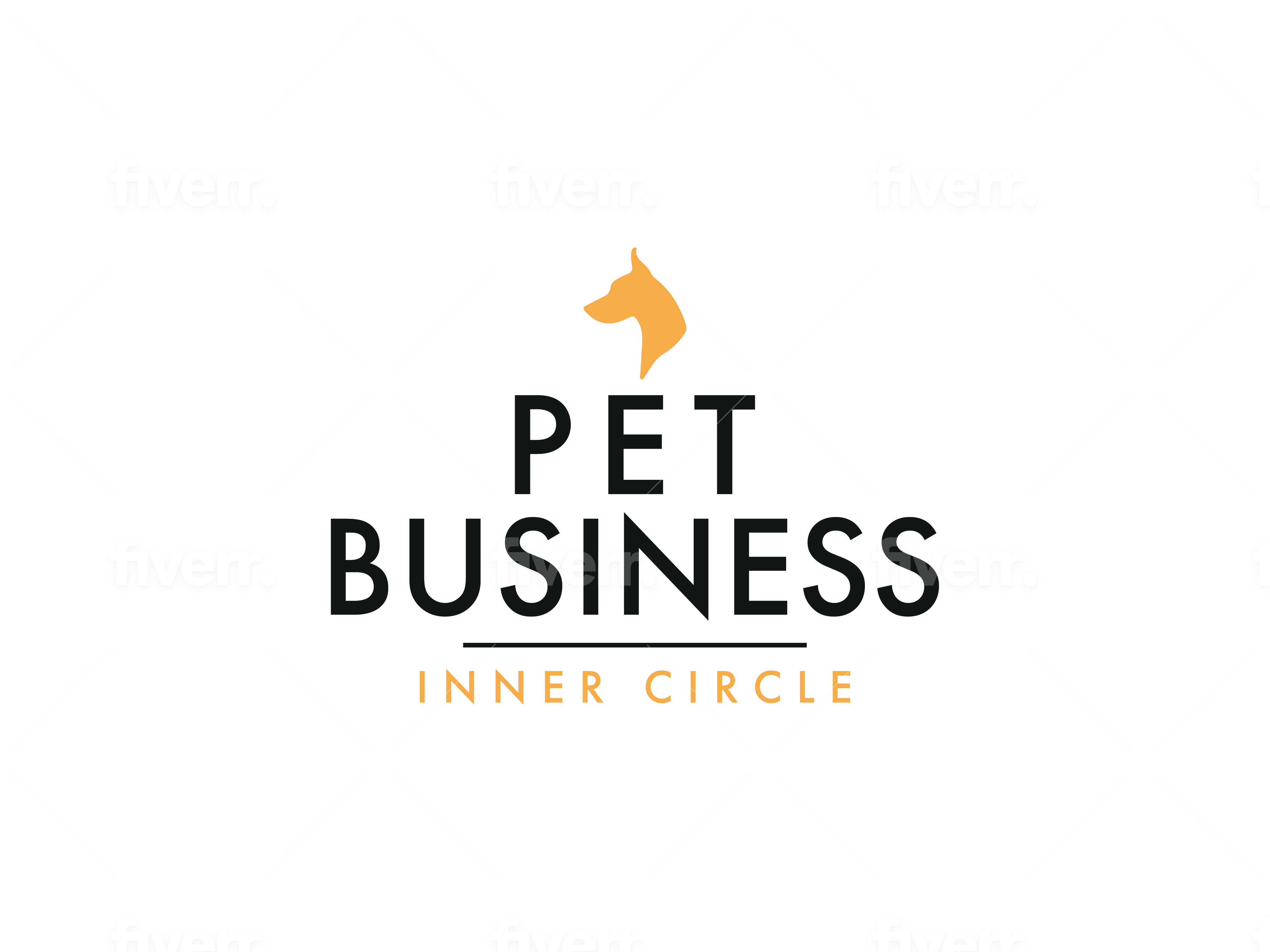
How Carol Clark Transformed Herself From Busy Burned Out Pet Pro, to Publised Author and Northern Irelands Leading Dog Trainer.
Discover how Carol Clark embraced her passion and completely changed her dog training business, by launched an academy to help other struggling dog trainers.
Listen and learn from Carol's inspirational story by clicking on the image below...
Full Transcript Below
Dom: Right, today I'm joined by The Doggy Doctor, Carol Clark. This is interesting, Carol is a Platinum coaching client of mine, but Carol was actually my first ever coaching call I ever, ever did, was with Carol. She still remembers it, and I still remember it. Hopefully, we're going to talk about a lot more than that. Carol, paint a picture a little bit, where you're from, and what you do.
Carol: I'm Carol Clark, as you say, The Doggy Doctor, and I'm based here in glorious Northern Ireland. The reason I'm The Doggy Doctor is I was a doctor. I got into dogs because I always wanted a dog, and when I got a dog I decided I wanted to know how to train it properly, so I went to a dog training club. And, cut a long story short, got the competing bug, did all sorts of stuff, got invited to be the trainer there and did that for many years while doing my real job of medicine. Then, we decided to take early retirement, so I decided to turn my hobby into a business. That's where Down Dog Training and Behaviour came from, that's when it was set up in 2008 now. It's scary how long ago it is now.
From there, it's gone from strength to strength. I've now got a team of trainers working with me, and they're taking over that training business and I'm stepping back a bit now. Because, I want to focus on my professional academy, sharing the knowledge I've had over the years, in both training and behaviour, and helping people to become dog trainers. Because, my superpowers are helping people with the human elements because, of course, dog training isn't about dogs, it's about humans and training humans, and get humans to do what you need them to do to help their dogs. That's my superpower and the bit I know about, because that's where medicine is the same as dog training.
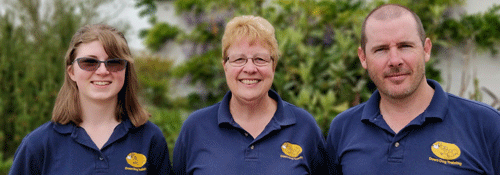
Dom: We'll talk about it in a second, we've pulled a lot of stuff from your past, the whole Doggy Doctor thing and you run your own clinics and all this kind of thing, and Doggy Doctor surgeries. Thinking back to what I just mentioned there about our first coaching call, you'd been stalking me for a little while online before that, hadn't you? In the old Inner Circle that I ran and stuff. What are some of the key things that we've done with your business?
Carol: You're so right, I stalked you for ages, the 33 Ideas of your pet business thing, and some of the dog training stuff you did, for ages before you started your coaching site. As you say, we had our first coaching call, and I will never forget it because, at that time, I was doing what probably a lot of people do when they start in dog training, I'd copied what I'd been doing in the dog club. So, I had a range of services, doing left, right, and centre, scrabbling for clients left, right, and centre, trying to keep prices down so that I'd fill the books, and all of the usual stuff. But, I was getting knackered and really wasn't enjoying it that much.
Then, we had our coaching call, and the first thing you asked me was, "Why was I doing all that stuff?" And, we realised that I shouldn't be doing half of that stuff. I should be focusing on the stuff I was good at and focusing on the stuff that was bringing the money. That's really where things took off. From then on, the business just expanded and grew quite quickly.
I've had to learn a lot, learning about marketing. From changing the business structure completely, through to forever increasing prices, which we still do, and starting paper and ink stuff, it's all so important and all has been very much part of my success. So, thank you.
Dom: No worries. I don't think there's anything you've resisted, actually, unless you have and you haven't told me about it. You have pretty much thrown yourself into everything. The writing, you've excelled at and you've turned that into a whole other thing. How many books have we written now?
Carol: Just finishing the seventh, which will be published just after Christmas.
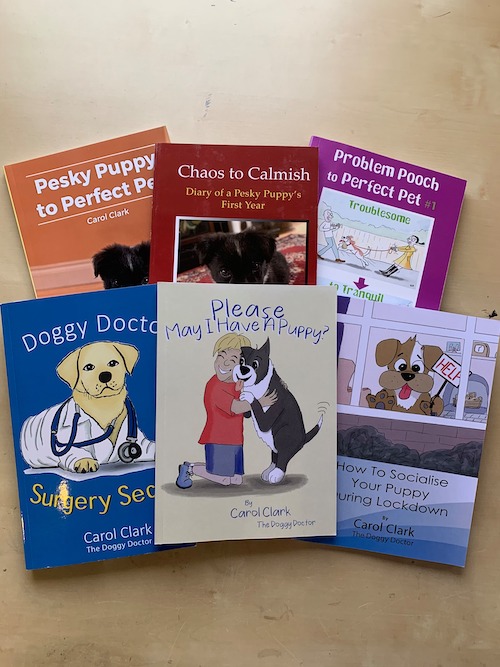
Dom: Right, so seven books. I've got a pile... Have I got them here or not? I don't think I've got them here. I've got a pile of Down Dog newsletters which you've just sent me, your latest batch. Here they are all here. This has helped to establish you as the pre-eminent pet expert in your town, which is ultimately the position that all ambitious pet business owners should be aspiring to own, isn't it?
Carol: Yeah. It's been helped because I've got various qualifications. And, I'm still really proud, I was the first ever Kennel Club accredited instructor for companion dog training, and I'm still the only one for behavioural training in Ireland, so I'm very proud of that.
Dom: So, it's a good point that you make there. Carol's been there, done that, got the T-shirt, when it comes to the dog training behavioural side of things, and lots of similar inspirations we've had along the way with dog training. You've taken that to such a level, why do you think it is that so many dog trainers, they don't do what you've done and what the other guys, certainly in my world do, where they see the importance of marketing at the same time? Why do you think that is? Why are you different?
Carol: That's a good question. I think one of the reasons people don't is it takes a lot of time. It's new, and it's hard, and it's difficult, especially at first. And, if you're scrabbling to earn enough money to live on, then you're just going to focus on just trying to do the job and bring the money in. And, you'll be scratching around and getting whoever wants to buy a service at the cheapest, they'll come, fill your book so you can actually afford the next meal. I can understand the pressure of that, because at first I think I felt that. I thought, "How on Earth can I do anything extra?"
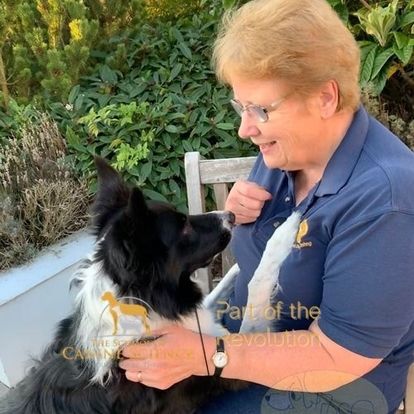
I think that's the key, because that's what you push all the time. It's not about doing it extra, it's about reorganising stuff, cutting out the stuff you don't need to do. All of us do stuff that we don't need to do. You can always cut something somewhere and find the time, because it's really important to find the time to do all the business side, do the marketing, and make sure the business is running properly, and check the finances, and all of those things. Because, they're the engine behind making the thing work. Why have I done it and not others? I don't know.
Dom: Was it the stalking? Because, a lot of people say to me, somebody just said it just recently, "You got me," kind of thing, "I wasn't going to do this, but then the mail came and da da da da, and I read this, and that, and the other, and then you got me." I don't know whether it was or not, but it must have had some kind of impression. You got to experience what I was doing from a consumer point of view, do you know what I mean? Rather than someone who's actively involved in the coaching process.
Carol: Yeah, and because you practise what you preach, and you get your story out there, and you tell all the personal stuff.
People who follow you will feel they get to know you. That's so important, that know, like, and trust thing. So, I got to know you. I like people who've got no bullshit and just tell it how it is, although after that first call I'm not too sure I wanted that, but I stuck with it.
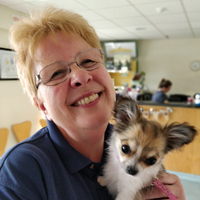
Carol: Because it works. Sometimes you do say things that you think, "I didn't really want to not do that." But, you're right. I have to say, that everything you've told me you've been right in. There's only one or two very small things I've done differently, I think, than what you suggested, but it works too, so that's fine.
Dom: That's testament as well. That's not easy, is it? It's not easy to put your ideas out there and have them shot down or have somebody say, "I think you should do this first," or whatever, so fair play to you as well. Coming full circle really, you were talking about our first call and when I said about, "Why are you doing those things?", I've just thought of this now actually, in a way, we've had some really big breakthroughs this year doing exactly that same kind of thing, where it's more focused, isn't it? So, we did a lot of work on the effective hourly rate and finding out which services of yours, and everybody else's, were the most profitable. And, basically put more efforts into that, and the results were astounding, weren't they really?
Carol: They really were. They changed where we were focusing the marketing. Because, it turned out that one of our services has a far greater effective hourly rate than any of the others. But, that was just one of several services we promoted, so now we're shifting to just promoting that thing. We're still not there yet, and I think we've still got a way to go to really, really push that and make it really special. But, that's what we're focusing on, because it's just a no-brainer once you do work out those sort of things. That was a big game changer for me.
Dom: What would you say to anybody who is thinking about hiring a coach? I take the mick, don't I, sometimes. Sometimes? A lot, about dog trainers, seminar junkies, and that's all that they do. I know you love your CPD, you love your learning, you love getting new inputs so you can create new things as well. But, at the same time as that, you turn up for the calls every fortnight, you're there, your 90-day goals is there. I know you've obviously found a way to realise that both of these things are hugely important to the business, and so, I guess, you give them equal billing, don't you?
Carol: Yeah, I do. It's important to keep up CPD, because knowledge is changing all the time and I want to make sure I'm giving my clients the very, very best service I possibly can. So, yes, I want to keep up to date. And, I choose very carefully now the things I do. We can't keep professional accreditation unless we've got that CPD background and can show we are still learning. It's important to me, because I always want to keep learning in whatever I do, whether it's German, or craft, or dogs, or whatever. That's part of me, part of my inquiring mind. I got a reputation at medical school for always asking, "Why?" And I think that helped me in life.
So, I need to do that, that's important for me, personally, as well as in the dog training. But, it's about balance. Because, if you set yourself up and try and do too much... And I would say to the first person who tells me I still do too much and I still don't always get the balance right. But, it is about important, to get the balance right between doing enough to keep yourself up to date and learn enough, but without grabbing every shiny new object that comes. Because, Facebook, social media, adverts are all just straight in front of you saying, "You got to try this method. You got to do this method. This is the way to teach loose lead walking. Or, this is how to deal with dogs with separation anxiety." But, if you've got the basics, if you understand the basics, you'll know if you're competent in those things. So, just doing something that keeps you up to date, perhaps looking at a review or whatever, not doing yet another course, that's the key, is not just keeping chasing things. I think it comes from this fear of missing out thing, FOMO, that people talk about.
Dom: Yeah. I would say this, because I'm a marketing guy... Well, I'm not, I'm a dog guy as well. Pet people, they're so passionate. I'm not saying they're more passionate than car salesmen, or carpet salesmen, or whatever, but they really want to do well. They want to do right by the dogs, and the owners, and in the community they want to make an impact. They're building up all this knowledge, and I always think the marketing, that's the missing piece. If you want to take all that stuff that you've learned and you want to help more people, the marketing's where it's at, because that's what gets the message out there and gets people in, isn't it? Which, you've proven.
So, I need to do that, that's important for me, personally, as well as in the dog training. But, it's about balance. Because, if you set yourself up and try and do too much... And I would say to the first person who tells me I still do too much and I still don't always get the balance right. But, it is about important, to get the balance right between doing enough to keep yourself up to date and learn enough, but without grabbing every shiny new object that comes. Because, Facebook, social media, adverts are all just straight in front of you saying, "You got to try this method. You got to do this method. This is the way to teach loose lead walking. Or, this is how to deal with dogs with separation anxiety." But, if you've got the basics, if you understand the basics, you'll know if you're competent in those things. So, just doing something that keeps you up to date, perhaps looking at a review or whatever, not doing yet another course, that's the key, is not just keeping chasing things. I think it comes from this fear of missing out thing, FOMO, that people talk about.
Dom: Yeah. I would say this, because I'm a marketing guy... Well, I'm not, I'm a dog guy as well. Pet people, they're so passionate. I'm not saying they're more passionate than car salesmen, or carpet salesmen, or whatever, but they really want to do well. They want to do right by the dogs, and the owners, and in the community they want to make an impact. They're building up all this knowledge, and I always think the marketing, that's the missing piece. If you want to take all that stuff that you've learned and you want to help more people, the marketing's where it's at, because that's what gets the message out there and gets people in, isn't it? Which, you've proven.
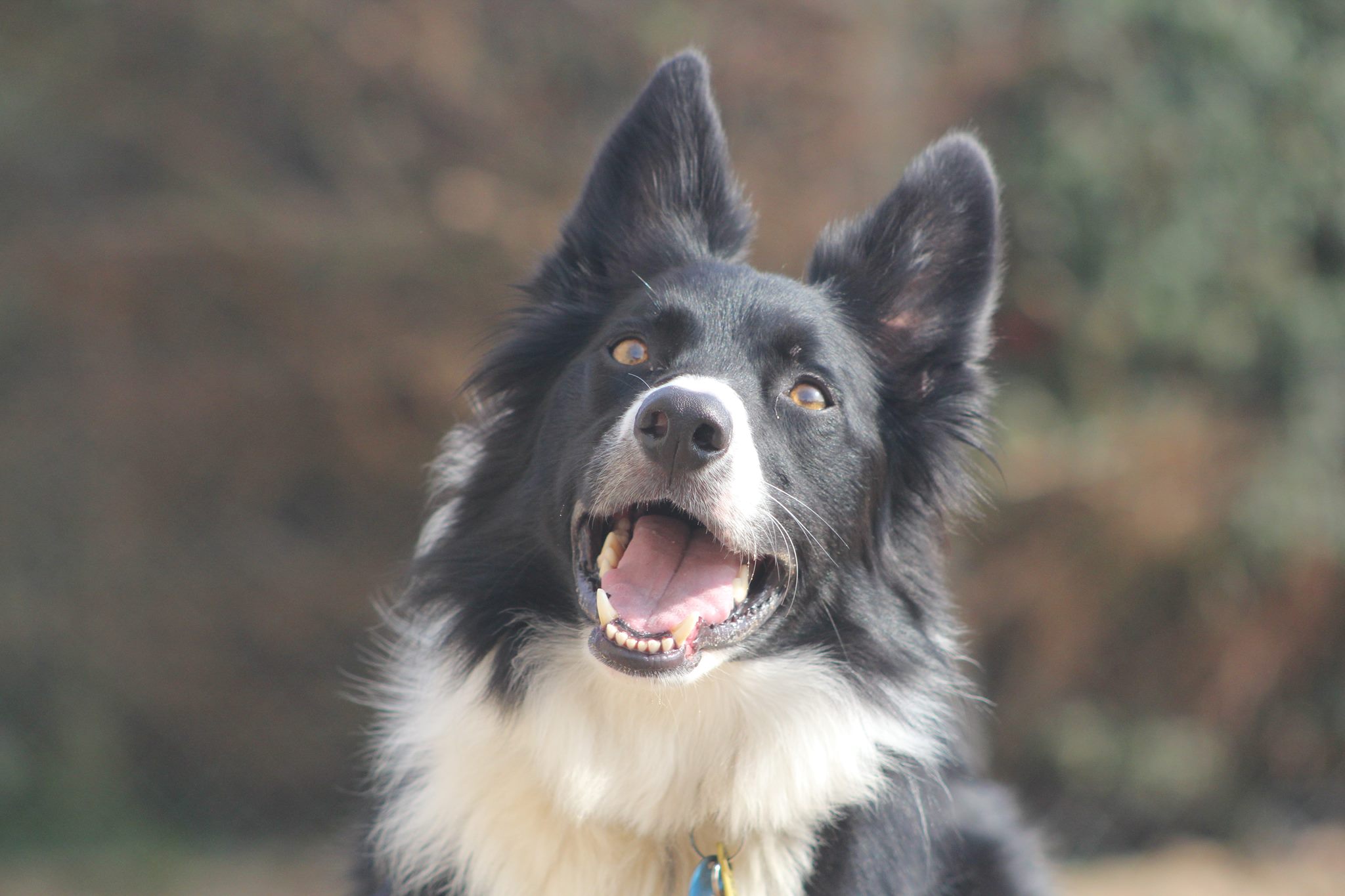
Carol: That's the point about the balance. If you're just doing the work and trying to keep up to date, you are, you're missing that third side of the triangle, you're missing that marketing. Which, is about getting that message out to other people, which is about getting your leaflets, and your pamphlets, and your newsletters out. And, it is about talking to people, and it is about getting known by... Following up locally if somebody rings you about something, and grabbing opportunities to just talk about what you do. And, giving a lot of free stuff away as well, I think that was something that I very much learnt from you, is do give it away. If people want to know how to do stuff, actually it's all in my books, you don't need me.
Dom: I know you've done other bits of coaching stuff as well, what would you say to anybody who's thinking about investing in coaching, dog trainers specifically, what would be your advice?
Carol: Because as you know, just before you'd started Platinum, I actually signed up with somebody else because I felt I needed a bit more than you were offering at the time, and then you flipping started Platinum and it was too late because I'd signed up with this other thing. But in fact, although it was with a very well known trainer, who is excellent themselves, it really didn't give me what I needed. It was just chatting through problems, but with no real solutions for it.
Whereas, you're really practical. You sort of get down to the nitty-gritty and the sort of, "Well, try this, try that, do that." It's all about trying stuff, because everything you do won't work.
What happens is they then develop into something else. That's really where the academy bit came from. Which you've been talking about for ages and which I've been going, "Yeah, I probably should do it. Yeah, I probably should do it. Yeah, I need to put it in my 90-day goals." And, eventually we did and, in a way, lockdown was the trigger for that. Launching a business within a business during lockdown, looking back, was a bit crazy really but, hey, it worked.
Dom: Yeah. It's worked and it's set you up for the next phase, hasn't it, for really where you want to go. And, because of the decisions that we made then with that, the knock-on effect from that was, "Well, then we need to systemize and staff this more." The existing business, and you had a three-year goal for that, or five-year, and I said, "We need to make this a bit faster." And, lo and behold, one year later it's done, isn't it?
Carol: Yeah, which has really worked this year, and I'm so glad it has because of what's happened with my family and I'm needing to spend a lot of time looking after my parents, so I need that time now. I can't afford to be spending the time I was spending in the business two years ago.
He's always right, that's the problem.
Dom: You don't mind saying that now, Carol.
Carol: No, I don't at all.
Dom: It trips off the tongue. Super proud of everything you've done, as always, Carol. Thanks so much for your support. Thanks for coming and sharing your story. I think a lot of dog trainers will get loads of value from what you've said. Where can people go to find out more about you and what you do?
Carol: The website, which is downdog.co.uk. And, you can also go to doggydoctor.co.uk, which takes you to the behaviour side of it, but it still goes to the same website. And, there's the academy page within that, for trainers academy, so if trainers want to know, look at the trainer's academy page. Or, go to online.downdog.co.uk, where you'll find a lot more about it too and the range of courses that we provide within that academy.
Dom: Fantastic. Thanks so much for your time, Carol, I'll speak to you very soon.
Check out Carol's website here
To hear more about Carol's story check out this Episode of The Poodle to PitBull Pet Business Podcast
If you would like to join Carol in the Diamond Coaching Program then check out the links below.
Dom can help give you the confidence and clarity about exactly what you need to do right now to radically increase your pet business income.
Inside the Diamond Coaching Program Dom can help you maximize your results. Dom's Diamond Coaching includes:
- Daily access to the worlds No #1 pet business coach, who has helped hundreds of pet business owners to transform their business fortunes, and build an amazing impactful business around the kind of life they want to have.
- Dom's proven step-by-step formula to systemise, staff and successfully scale your business (without any fluffy-bunny, waste of time, silly social media nonsense...)
- Access to the most amazing kick-ass, heart-centred community of pet professionals on the planet – Diamond members get more done than anyone else.
- Clarity, confidence and a personalized clear action plan of action to get you moving forward, fast!